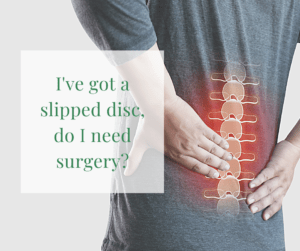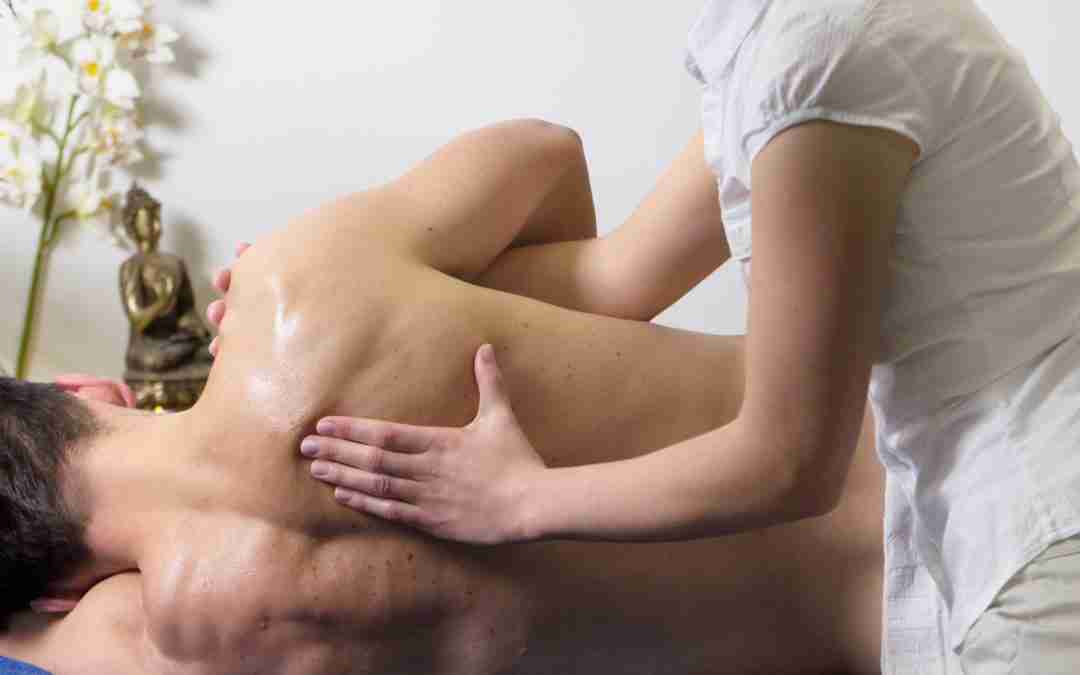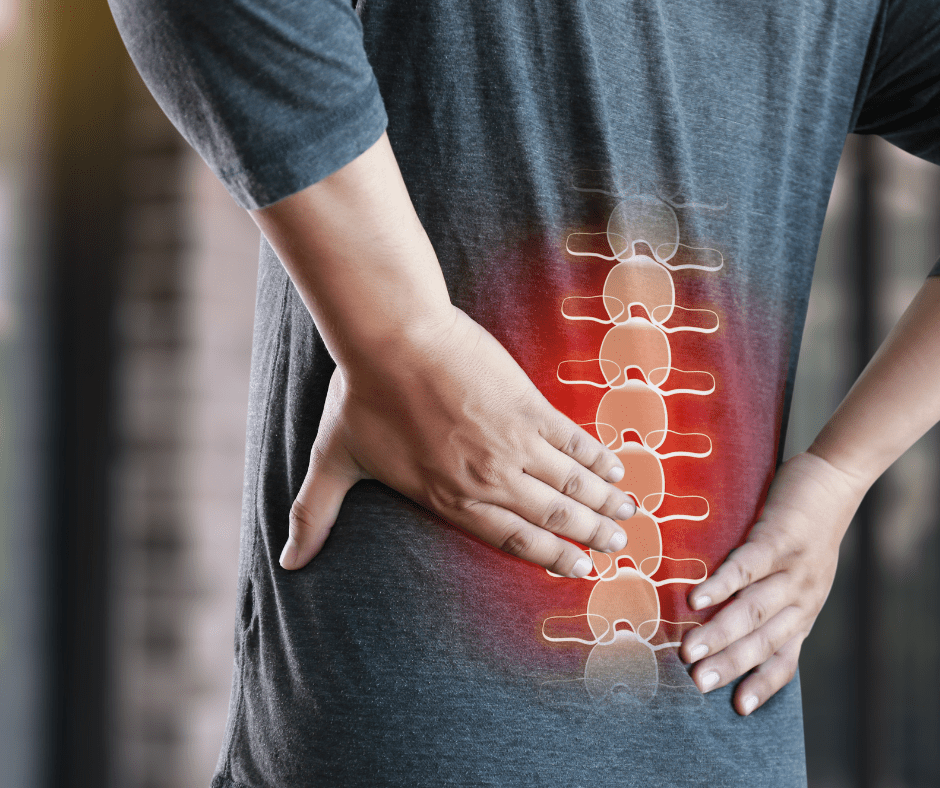What do I do if I think I have a slipped disc?
What is a slipped disc?
The term slipped disc is unhelpful, discs are not like a hockey puck that can slip out and be popped back in. The disc is made up of two parts, the nucleus and the annulus. The nucleus is like a gelatinous ball bearing in the centre of the disc mostly water and proteoglycan, the annulus is ligament type tissue that surrounds the nucleus. The disc acts as a shock absorber transmitting load through the spine from bone to bone. Unfortunately, the discs can start to flatten, and the nucleus gets squeezed out and you can have a disc bulge out the back or the side of the spine. This can sometimes press on and irritate the nerve nearby causing quite severe back pain and referred pain into the leg.
Sometimes as the nucleus is leaking out of the disk and into the space next to the nerve is it can chemically irritate the nerve, inflaming it again creating quite severe pain in the back, buttock and down the back of the leg. We know from research that our discs start to wear a little bit at a young age, even in our 20s and 30s. People in their 40s and 50s have a higher rate of this generation and something like 80% of people over 75 or also have disc degeneration. What we can conclude from this is that it is a natural process that happens throughout our life. Many people are walking around with degenerative discs or “slipped discs” and they don’t have any pain whatsoever, so just because you get told you have a slipped disc or see this on an MRI it’s not the end of the world.
How to treat a slipped disc
Most of the time the problem can be treated with anti-inflammatory medication and physiotherapy including strengthening exercises for the core muscles. It will take some time to resolve, sometimes a couple of months. However, after this stage if you’re still experiencing significant pain, an MRI might be worth having. This is really to confirm the diagnosis and to inform further treatment options. The next most useful treatment option at this stage is a steroid injection to calm the inflammation down. There is generally no real need for surgery unless after several months of physiotherapy and a steroid injection there has been no improvement in your symptoms.
Should I be worried about a slipped disc?
The only emergency need for surgery is if you have cauda equina syndrome. This is pressure of the disc onto the nerves that control bowel and bladder function, and this is a medical emergency. This is very rare, but people start to complain of an inability to pass urine or a lack of sensation of fullness, or fully emptying the bladder. They may also lose sensation between the legs. If you are experiencing back pain or pain and pins and needles in the leg come and visit us at Wandsworth Physiotherapy for an assessment and treatment plan.





